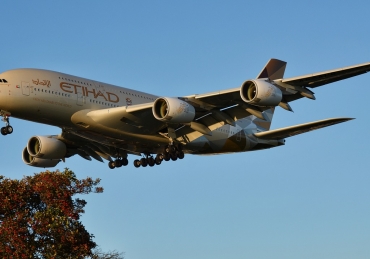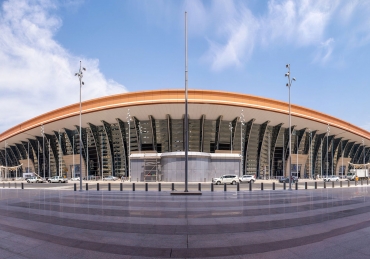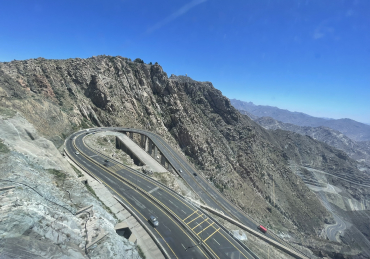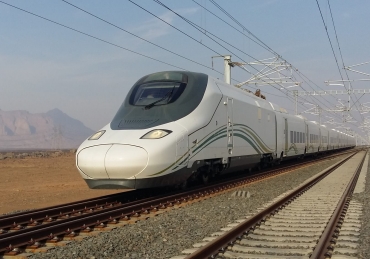Iḥrām from Madīnah Munawwarah on fast train
Question
Many people use the high-speed train to travel from Madīnah Munawwarah to Makkah Mukarramah. Some tour groups advise people to make intention whilst on board the train. Some people however pass the parallel point to Dhū al-Ḥulayfah and make intention thereafter. What is the Islamic perspective in this regard?
بسم الله الرحمن الرحیم
Answer
If a person is travelling from Madīnah Munawwarah to Makkah Mukarramah, the Mīqāt is Dhū al-Ḥulayfah. The Prophet ﷺ entered into Iḥrām at Dhū al-Ḥulayfah. It is therefore preferred that one visits the Masjid in Dhū al-Ḥulayfah and enters into Iḥrām there and thereafter proceeds to Makkah Mukarramah by road or train.
If a person does not enter into Iḥrām at Dḥū al-Ḥulayfah and is travelling by train from Madīnah Munawwarah, he should make intention at the train station or on board the train before the train departs. This is because the train travels very fast and passes the parallel point to Dhū al-Ḥulayfah within two to three minutes of departure. It is therefore strongly advised to make intention to enter into Iḥrām before the train departs or immediately after it departs.
If a person makes intention to enter into Iḥrām after passing the parallel point to Dhū al-Ḥulayfah, then a Dam (sacrifice of a goat or equivalent in Ḥaram) will be necessary unless they return to a Mīqāt before performing Ṭawāf. In this scenario, entering into Iḥrām at the parallel point of another Mīqāt like Juḥfah will not suffice, because a person departing from Madīnah Munawwarah must enter into Iḥrām before passing Dhū al-Ḥulayfah or its parallel point, unless they are travelling via another Mīqāt.
عن ابن عباس أن النبي صلى الله عليه وسلم وقت لأهل المدينة ذا الحليفة، ولأهل الشام الجحفة، ولأهل نجد قرن المنازل، ولأهل اليمن يلملم، هن لأهلهن، ولكل آت أتى عليهن من غيرهم ممن أراد الحج والعمرة، فمن كان دون ذلك، فمن حيث أنشأ، حتى أهل مكة من مكة، رواه البخاري (١٥٣٠). وقال القدوري في مختصره (ص ٦٦): والمواقيت التي لا يجوز أن يتجاوزها الإنسان إلا محرما: لأهل المدينة ذو الحليفة، ولأهل العراق ذات عرق، ولأهل الشام الجحفة، ولأهل نجد قرن المنازل، ولأهل اليمن يلملم، فإن قدم الإحرام على هذه المواقيت جاز، انتهى. وقال السمرقندي في تحفة الفقهاء (١/٣٩٥): ثم الآفاقي إذا جاوز الميقات بغير إحرام وهو يريد الحج أو العمرة ثم عاد إلى الميقات قبل أن يحرم فأحرم منه وجاوزه محرما، فإنه لا يجب عليه الدم لأنه قضى حقه بالإحرام. فأما إذا أحرم بعد المجاوزة من داخل الميقات للحج أو العمرة ومضى على إحرامه ذلك ولم يعد فيجب عليه الدم، لأنه أدخل النقص في إحرامه. فأما إذا أحرم ثم عاد إلى الميقات وجدد التلبية والإحرام فيسقط عنه الدم في قول أصحابنا الثلاثة، وعند زفر لا يسقط، انتهى. وقال الزين بن نجيم في البحر الرائق (٢/٣٤٢) وتبعه أخوه عمر في النهر (٢/٦٢) وابن عابدين (٢/٤٧٦): المحاذاة إنما تعتبر عند عدم المرور على المواقيت، انتهى۔
Allah knows best
Yusuf Shabbir
2 Dhū al-Ḥijjah 1446 / 29 May 2025
Approved by: Mufti Shabbir Ahmed and Mufti Muhammad Tahir





